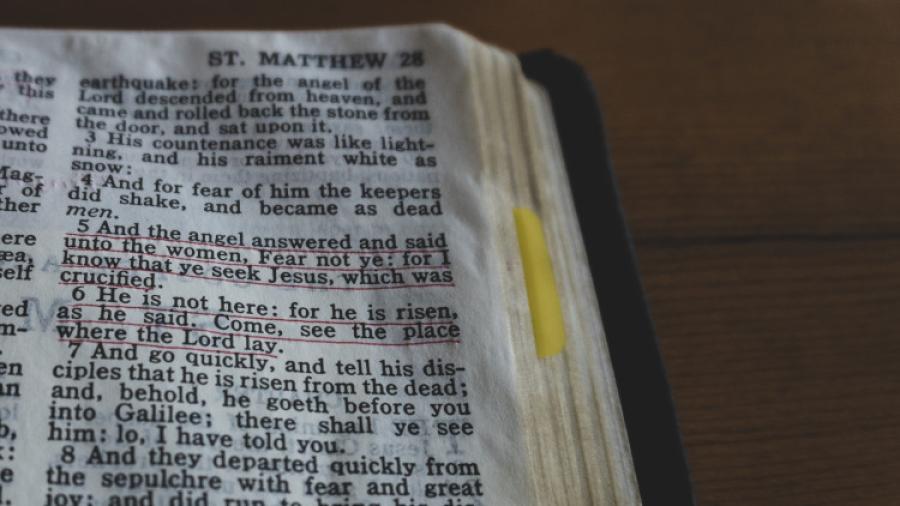The Kingdom of Heaven in Matthew (Part 9)
Image

Read the series.
Matthew 25
The Parable of the Ten Virgins in Matthew 25
The two parables that begin chapter 25 both have lead-ins which state, “The kingdom of heaven is like” (Matt. 25:1, 14). The second of these, the Parable of the Talents (Matt. 25:14-30)1, is about stewardship in honoring the King. Glasscock hits the nail on the head:
[T]he Lord’s point was that the kingdom…was calling servants to honor and glorify its King. Those who failed to do so demonstrated they were not true servants but wicked, lazy, and useless usurpers of the prerogatives of the kingdom…primarily this parable relates to Israel, who claimed a desire to serve their King but in reality squandered His blessings. Any tempt to relate this to the church or associate the “talents” with skills or abilities, especially spiritual gifting, is eisegesis.2
The first parable is about the wise and foolish virgins and concerns “the day [and] the hour” of Christ’s coming (Matt. 25:13 cf. 24:36). The story is simple. Ten virgins (sort of maids in waiting who have not yet been married) are looking out for the bridegroom. Only five virgins prepare their lamps for the dark, and when it comes five are away buying oil while the bridegroom arrives and leaves. Five virgins were unprepared for the bridegroom’s coming (cf. Matt. 24:44). In this parable we find more support for those “taken” in chapter 24 being the saints, while the unprepared remain.
The Sheep and the Goats
The Olivet discourse closes with Jesus depicting a scene which happens after His second advent. Again, it should not escape notice that since Jesus began to answer the disciples’ question in Matthew 24:4 the focus has been upon the end time and the second advent. Let us look at how the section begins:
When the Son of Man comes in His glory, and all the holy angels with Him, then He will sit on the throne of His glory. All the nations will be gathered before Him, and He will separate them one from another, as a shepherd divides his sheep from the goats. And He will set the sheep on His right hand, but the goats on the left. – Matthew 25:31-33.
This judgment appears to complement to the Parable of the Talents as in that passage too the King returns and deals with people and their service (or lack of it) toward Him. Note that whereas the parable has the King interacting with individuals (e.g., Matt. 25:24-27) the “Sheep and Goats Judgment” pictures Him addressing and being addressed by groups (“those on His right hand,” the righteous,” “those on His left hand.” – Matt. 25:34, 37, 41). We are not told how the wicked among “the nations” remain after the second coming, but nothing contradicts what we have already been told in Matthew 13:41-43 and 49-50 as long as one allows this passage in Matthew 25 to throw light on those parables. What we are told here must mean that for example, the dividing off of “those things that offend” in the Parable of the Dragnet (Matt. 13:47-50) occurs after the Lord’s return. Clearly King Jesus has some house-cleaning to do before He can begin His reign of shalom in earnest.3
The passage indicates that it is “the nations” (ethnos – Matt. 25:32) that are being judged. This word ethnos usually signifies Gentiles in contrast to Jews. Hence, the entry in Balz and Schneider is unambiguous:
Matthew describes the Son of Man’s judgment of “all ἔθνη.” According to Matthew’s usage and the context and content of the pericope, “all ἔθνη must refer to those peoples (outside Israel!) to whom the message of Christ has not reached or rejected it.4
Granted that “the nations” equal the Gentile nations, are we justified in maintaining that those Jesus refers to as “My brethren” are Jews? It appears that may be so, although it should be admitted that taking “My brethren” (Matt. 25:40) as meaning “My fellow Jews” is more than a short stride. It may well refer to all believers in that day.5
The treatment of the “goats” is as severe as it could be. Those at Christ’s left hand depart to “everlasting (aionios) punishment”; a fate which corresponds to the “everlasting (aionios) life” of those on His right (Matt. 25:46). There can be no doubt that if the “sheep” enter eternal bliss then the “goats” enter eternal punishment. There is no room at all in this verse for the notion of a temporary hell, still less annihilationism.
Notes
1 Although some writers hold that the Parable of the Talents is repeated in Mark 13: and Luke 21: I am one of those who disagree. There are too many dissimilarities between Matthew’s account and the other Gospels. See Ed Glasscock, Matthew, 484.
2 Ibid, 488.
3 This calls to mind the mysterious time delay one reads about in Daniel 12:11-12 where the difference between the length of days in those verses many indicate the time needed for this “shake up” immediately after Christ’s arrival.
4 N. Walter, “ἔθνος” in Exegetical Dictionary of the New Testament, edited by Horst Balz and Gerhard Schneider, Volume 1, Grand Rapids: Eerdmans, 1999, 383.
5 There is an element of works in the verdict: E.g., “Assuredly, I say to you, inasmuch as you did not do it to one of the least of these, you did not do it to Me.” (Matt. 25:45). Perhaps this is because the circumstances will require true faith to reveal itself through good works.
Paul Henebury Bio
Paul Martin Henebury is a native of Manchester, England and a graduate of London Theological Seminary and Tyndale Theological Seminary (MDiv, PhD). He has been a Church-planter, pastor and a professor of Systematic Theology and Apologetics. He was also editor of the Conservative Theological Journal (later Journal of Dispensational Theology). He is now the President of Telos School of Theology.
- 61 views


Discussion